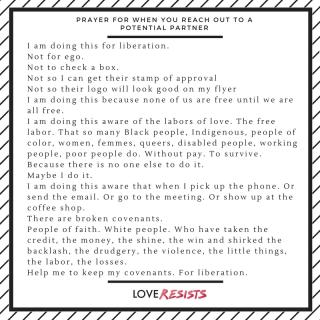Criminalization is a Tool of White Supremacy
A recent intelligence assessment by the FBI shows that federal law enforcement officials have created a new category of domestic terrorists they are calling “Black Identity Extremists” or BIEs. As leaders in the Movement for Black Lives Shanelle Matthews and Malkia Cyril outline in a recent Op Ed in The Washington Post:
The [assessment] broadly categorizes black activists as threats to national security. It uses unrelated acts of violence, such as the July 2016 shootings of police officers in Dallas and Baton Rouge, as justification for targeting black dissident voices. And it labels black activists — whose central demands are that government officials be responsible stewards of their power, accountable to the people who elect them and transparent about decision-making — as a threat to national security.
When we talk about the criminalization of our communities we mean that those of us who are Black, Muslim, Latinx, immigrant, trans and/or LGBTQ face particular threats to our basic rights. This includes surveillance of communities, schools and individuals. It includes police brutality and the use of local law enforcement as federal immigration agents. And it includes legislation that targets and penalizes low-income neighborhoods and communities of color, like "broken windows" policing, harsh sentencing for marijuana possession, and high fines for civil infractions.
Origins and Resistance
The language of criminalization comes from a number of People of Color led organizations, particularly Black Youth Project 100 (BYP100) and Mijente. Both groups organize around ways that communities impacted by state-sanctioned and state-enforced surveillance, policing, detention, and imprisonment can build power and fight back.
BYP100 uses this short definition:
Black youth are constantly reminded that in the minds and actions of the system of law enforcement, they are people to be contained, monitored, detained and arrested--that is a criminalization of their lives. Young Black people are all too often seen as criminals and not humans with rights that must be respected.
Resisting criminalization calls each of us to work in humble partnership, led by those most impacted. Our response is to courageously expand sanctuary - expand the cities, schools, communities where we resist criminalization in all of its forms. Love Resists offers spiritually–centered resources to inform, encourage, and sustain the work of building partnership.
Spiritual Grounding and Support
Understanding that all people have worth, that we all have a responsibility for making our communities truly safe, and that our connection to one another means that no one is safe until we are all seen and supported, Unitarian Universalists find guidance for resisting criminalization in the Seven Principles.
Here are two resources for spiritual support and sustenance that we hope you'll find useful and can share with others:
Prayer for When You Reach Out to a Potential Partner
A song for resisting the criminalization of people who migrate.
